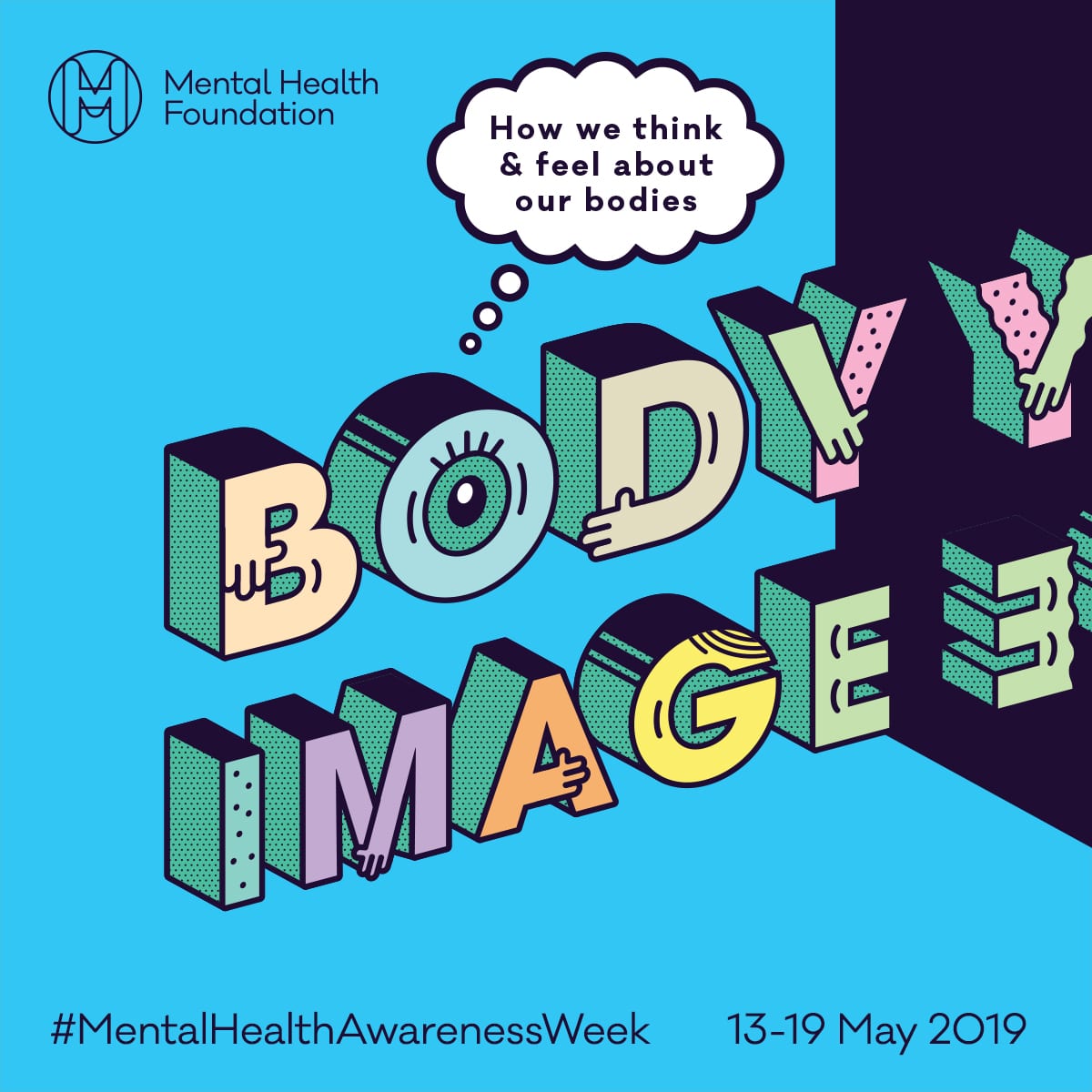Shifting the focus from body weight to a positive state.
The theme for this year’s Mental Health Awareness Week UK is body image. How we think and feel about our bodies- on both an individual and social level- is having a big impact on our mental wellbeing. Shocking new statistics from the The Mental Health Foundation found that 1 in 8 adults has considered taking their own life because of concerns relating to body image. The cultural and social importance placed on body image is having a devastating impact on our sense of self-worth and is warping our understanding of health. Because ’being healthy’ is about so much more than weight, shape and exercise. It’s about the mind, the body and with that all of the internal phenomena that goes on beneath the surface.
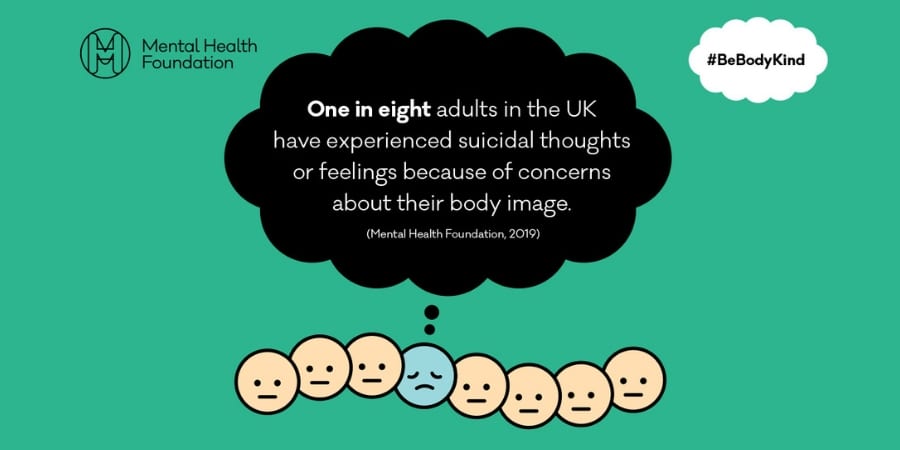
In this article we’re looking at health through a holistic lens, in order to shift the focus from body weight to a positive state. The aesthetic focus that dominates our understanding of health is undermining many other important factors, like our mental wellbeing. So, in support of mental health awareness week we’re looking at health in 4-dimensions and offering simple ways to accept, include and potentially upgrade each of these dimensions into your attitude and action plan for healthy living. By stepping back and looking through a system lens, we’re transforming a 1-dimensional definition of health into a 4-dimensional, all-inclusive celebration of holistic health. Let’s turn it up to 4D….
Physical Health: Slow down
In 2014 I ran the London Marathon. I’m still incredibly proud of this achievement because it seemed like a physically impossible challenge. When I signed up for a charity place 8-months prior to event I could barely run 3km without stopping. Fast forward half a year and I was running half-marathons every other weekend and starting to believe that I might just make it through the 26.2 miles. I was- by the standard definition- really healthy and fit. Yet, I was missing the signs and signals that were starting to show up below the surface of my strong runner’s body- like the niggles and locks I was getting in my knees. Instead, I strapped on two bulky knee supports and managed to make it through one of the hottest London Marathon’s to date. Sadly, that was one of the last times I’ve been able to run long-distance, as since that event I’ve had 4 major knee operations, including 2 stem cell transplants. Now, this isn’t to say that this wouldn’t have happened at some point, as I do have a predisposition for knee injuries. However, not listening to my body and placing a heavy focus on aesthetic health, probably didn’t help.
Whilst the ‘physical’ dominates the conversation around health, it’s often limited to aesthetic signs and symptoms that are collectively to blame for our unhealthy, obsessive relationship with body image. However, it all starts at a much deeper dimension physically, which is then affecting what we think, feel and believe. We’re all releasing chemicals into our brain all the time. Simply standing in a different way can affect the neurochemicals that are released into our brains. So, I’m going to offer a surprising- yet quite possibly life-changing- way of stepping into a more all-encompassing understanding of physical health: slowing down.
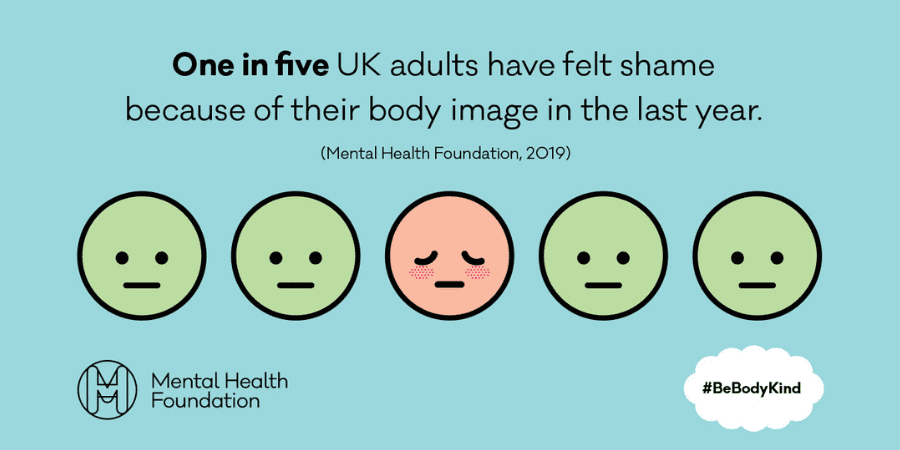
You don’t need to be a scientist to understand that the mind works faster than the body. For example, the body takes almost 20 minutes to sense hunger in which time the brain has decided it wants a second helping, dessert and another glass of wine. And then the “Oh God I’m full” sensation kicks in. Whilst the body’s systems often operate in a slow and steady fashion they should not be considered as simple or inferior to the brain. Via an incredibly sophisticated network of nerves, neurones and hormones the body sends signs and signals to the brain to help it make sense of the world. That is- if it’s listening. If your mind is too focused on the awkward conversation you had with your boss at lunch, then it probably won’t have the capacity to properly consider hunger, tiredness and the fact that your knees are aching again. It sounds simple, but listening to the body in a culture characterised by fast food and contactless credit cards takes a lot of conscientious effort.
Knee surgery was my way in to a slower way of living. A life-changing silver lining that has completely transformed the way I listen to my body and think about my life. However, you’ll be thankful to know that there are other avenues to slowing down, that aren’t so drastic or debilitating. Simple, shortcuts that put the body back in the driving seat. For me, this involves meditating every morning, taking walks without my phone, not saying ‘yes’ to every invitation, and prioritising self-care. To quote the wise word of Pico Iyer, author of The Art of Stillness: “In an age of speed, I began to think, nothing could be more invigorating than going slow. In an age of distraction, nothing can feel more luxurious than paying attention. And in an age of constant movement, nothing is more urgent than sitting still.” He suggests slowing down can be as simple as “taking a few minutes out of every day to sit quietly and do nothing, letting what moves one rise to the surface.”
Emotional Health: Celebrate Sleep
I used to regularly start my day rushing from my flat to yoga studio- pushing past everyone on the elevator – just so that I could make it to my mat on time. I remember on one particular occasion, dashing across London to make it to a 6am class. I arrived at 5:55am, only to be told that I was late and that they’d given away my place. “I’m 5-minutes early” I told the receptionist. “Yes, but you need to be here 10 minutes before class. So technically, you’re 5-minutes late.” Resisting the urge to scream at the yoga receptionist I turned away feeling broken, bitter and wishing I’d stayed in bed for an extra hour.
Hindsight can be quite hilarious. As I write this I am recalling so much stress: running red lights, power walking along yellow lines on station platforms and knocking over tourists… all in search of relaxation and release. It seems so silly because my bull-dog pursuit of wellness has often added pressure and strain to an already overwhelmed day. Rushing to relax is surely counterintuitive, so why then is stress around wellbeing so prevalent? In part because the consumerist life-model is often dressed up in a wellness cloak. It guises itself as selfless and well-meaning but it is sometimes no better than the unashamed consumer. So, my remedy for emotional health is simple: celebrate sleep.
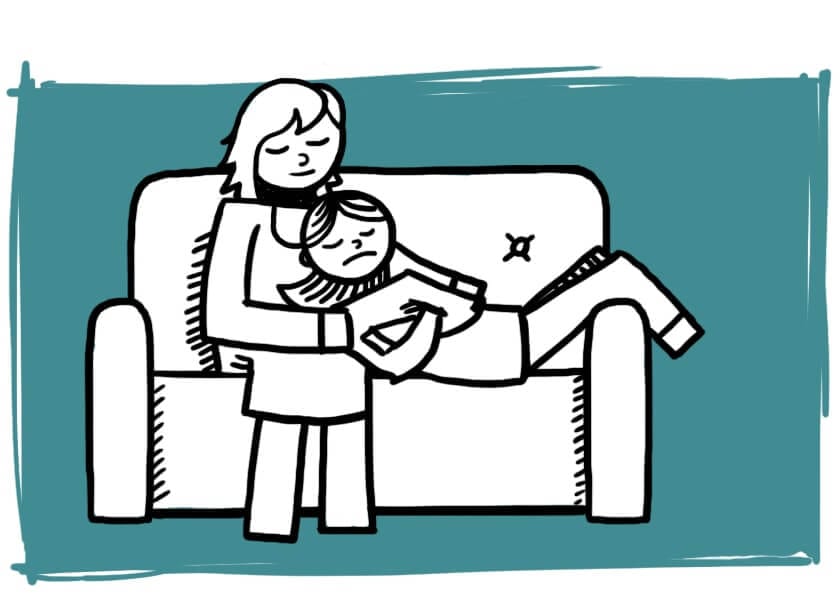
Sleep is one of our fundamental needs and is arguably more important that food: whilst we can last 30-40 days without food the longest recorded time without sleep is approximately 264 hours, or just over 11 consecutive days. So, whilst we’re not telling you to skip your morning gym sessions, we are asking you to reevaluate your relationship with sleep. Because the physical and mental ‘gains’ you’re hoping to get from going to the gym after 4 hours of sleep might be completely counteracted by your exhausted and overwhelmed body. Those of you who are parents will have experienced children saying they are hungry when they are in fact, tired. Well studies show that we do this as adults too. “For adults, over-tiredness or exhaustion can leave you irritable, lethargic, a little slow in the head, and craving high-fat, high-carbohydrate snacks, as your body looks for a quick fix for its depleted energy stores.” As well as being linked to fat gain, and muscle loss, sleep deprivation has also been shown to significantly compromise the immune system. One study showed that “Routinely sleeping less than six or seven hours a night demolishes your immune system, more than doubling your risk of cancer.” To quote the words of Alex Soojung-Kim Pang, author of ‘Rest: why you get more done when you work less’: “If you want rest, you have to take it. You have to resist the lure of busyness, make time for rest, take it seriously, and protect it from a world that is intent on stealing it. History.”

And perhaps unsurprisingly, insomnia often goes hand-in-hand with depression. “Until recently, insomnia was typically seen as a symptom of depression,” says Michael L. Perlis, director of the Behavioural Sleep Medicine Program at the University of Pennsylvania. “Treat the underlying depression, the thinking went, and sleep problems would go away.” But new research shows that insomnia is not just a symptom of depression: it can actually be a causal factor. So, if you find yourself feeling stressed out, maybe take a look at your sleep. To quote Matthew Walker, best-selling author of ‘Why we sleep’: ““The best bridge between despair and hope is a good night’s sleep.”
Intellectual Health: Read Daily
I’m sure I’m not alone in admitting that I place far too much importance in the number on the scales. After two knee surgeries last year I lost quite a bit of weight- mostly due to the muscle I lost from my legs. And I’m ashamed to say that I secretly celebrated this lower number. Fast forward a year and I was so happy to have two strong and supportive knees. Yet, in spite of this health success I found myself frustrated by an increase in the numbers. My legs had built muscle that was helping me to hike, teach yoga and learn handstands, and yet, my healthy body somehow felt like a failure- all because of a number on the scales. On so many levels I knew this made no sense, as I was so much healthier and happier than I had been after surgery. Yet I found it impossible to break this hardwired blueprint. So, my husband helped me do the next best thing: he hid the scales! And I’m surprised to say that this small and simple change has had such a positive impact on my day-to-day wellbeing. Because now when I wake up in the morning, instead of reading a number on a scale, I start my day by reading a book. I’ve swapped criticising my body, for building my brain.
As Dr. Seuss once wrote, “The more that you read, the more things you will know. The more that you learn, the more places you’ll go.” It can also help you to feel significantly happier. One 2009 study showed that reading can reduce stress by as much as 68 percent. Cognitive Neuropsychologist Dr Lewis, says: “Losing yourself in a book is the ultimate relaxation. This is particularly poignant in uncertain economic times when we are all craving a certain amount of escapism. It really doesn’t matter what book you read, by losing yourself in a thoroughly engrossing book you can escape from the worries and stresses of the everyday world and spend a while exploring the domain of the author’s imagination.” Making reading a part of morning ritual has reduced my stress levels and has helped me to develop a healthier relationship with my body. You’re just one click away from an infinite number of books and articles, that will take you on adventures, teach you new things and perhaps even inspire body positive thinking. I’ve taken this one step further by painting the words ‘I am enough’ on my living room wall. The hope is that on some subconscious level, reading these words on a daily basis wills be reprogramming my core beliefs about myself.
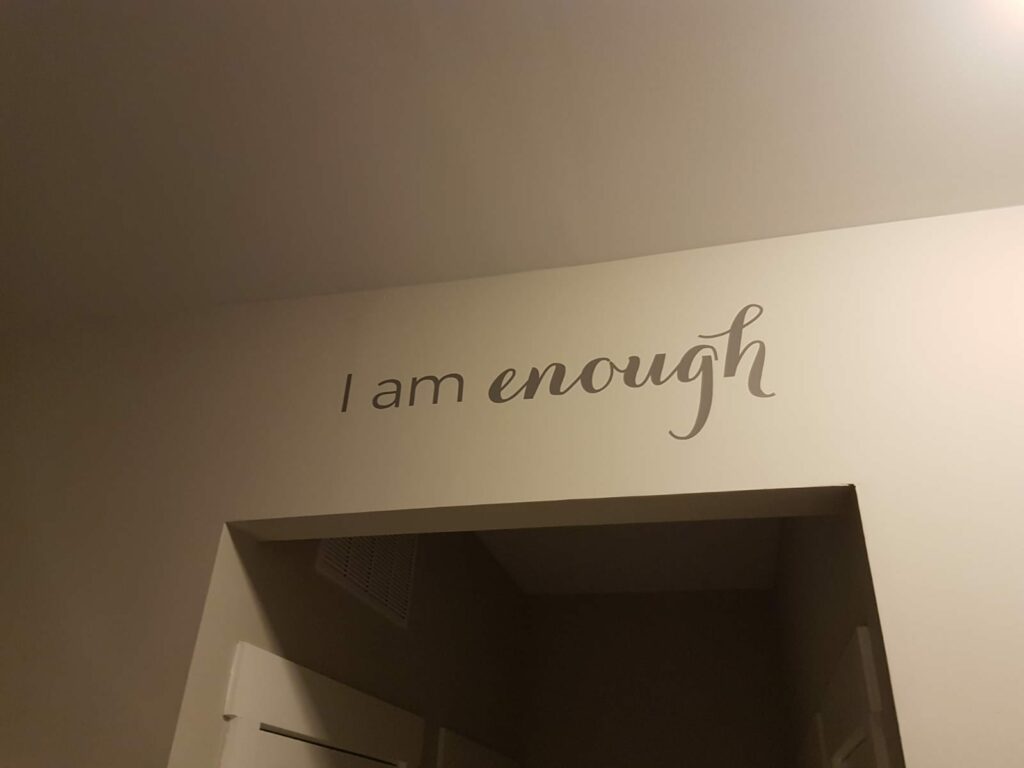
Furthermore, reading is a hobby and a habit shared by some of the world’s most people including Warren Buffett who believes it to be the key to success: “Read 500 pages […] every day. That’s how knowledge works. It builds up, like compound interest. All of you can do it, but I guarantee not many of you will do it.” In addition, the very activity of reading itself activates and engages both the right and left sides of the brain, thus giving you access to your creative and logical thinking styles. According research, reading, unlike watching or listening to media, gives the brain more time to stop, think, process, and imagine the narrative in from of us.
As a society we spend so much time, energy and money focusing on our weight and far less on building brain boosting habits, like reading. So let’s rebalance our attention by putting ‘brain training’ on our ‘exercise’ schedules. One study showed that activities that create mental stimulation, like reading, can protect memory and thinking skills, particularly as we age. The study also suggested that reading every day can slow down late-life cognitive decline. So indirectly we can assume that reading, can actually help us to live longer.
Here are some stats to get you started…

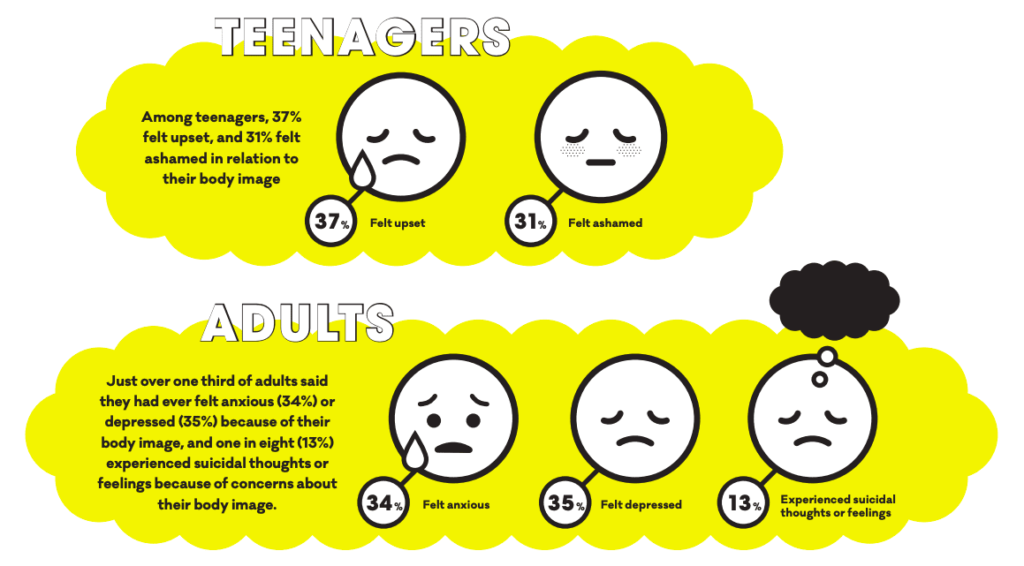

Intentional Health: Redraft the story
On a daily basis we are bombarded with images of ‘perfection.’ Images that are causing us to internalise ‘shoulds’ that impact what we think, feel and believe about our bodies.
Now every time you have a new thought about what you ‘should’ look like, you create a new neural pathway in the brain. And when that thought repeats it suggests to the brain that it’s a really important thought. So the brain does it’s best to preserve and strengthen the neural path by wrapping it in a protein called myelin. The more the thought repeats the more you protect the neural pathway. Over time you build up a superhighway around a thought. Which is useful if it’s a positive thought and in line with the story you want to tell. But the brain doesn’t discern between good and bad, useful and unhelpful. The thoughts that occur most often in your mind will be the ones that the brain believes are most important to you.
So, if you keep telling yourself that you hate yourself over and over again, your brain will build a super strong pathway and it will become a belief for you. However, what you may not realise is that you have built this belief because you have built this neural pathway. This is why the story we tell ourselves is so important because it can completely change the way we see ourselves in the world.
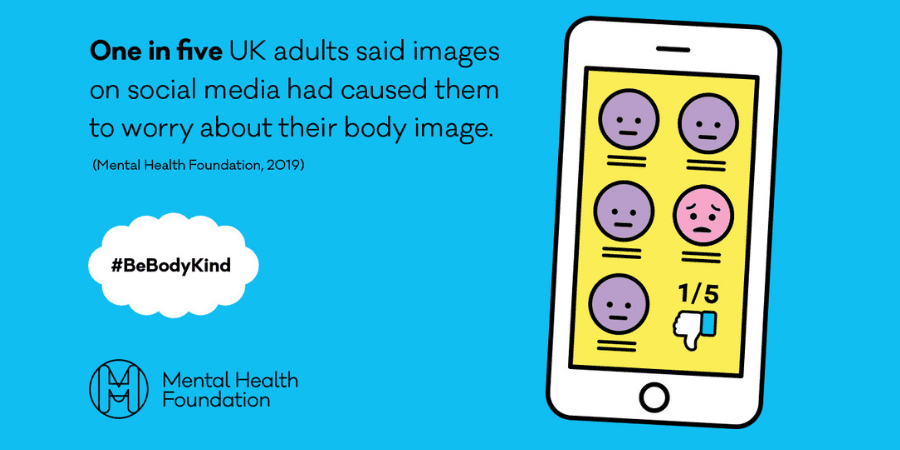
Now obviously some beliefs are much more difficult to rewire than others. Beliefs that have repeated over and over from a young age will have become ingrained in your neurobiology. These beliefs may have created unconscious behavioural patterns and habits that play out in relationships- with yourself and others. And you may not even be aware of the beliefs that are behind these behaviours because of how imbedded they have become in your psyche. So be patient, these beliefs will take longer to break. But they can be changed. We know this because of science. And I know this from personal experience.
Think of something small and simple you’d like to change. Decide what you want to rewire, and we’ll work together to rewrite the story…
1. Look for evidence that contradicts the belief
This can help you to gain some perspective on the belief by narrowing its catastrophising effect. By reframing the belief, you can start to take charge and apply some order to this exaggerated assumption. Context and clarity are key because they enable us to break down the limiting belief and build it up into something new: into something we can do. We’re not rewiring with a lie, we are re-storying with your true potential.
2. Listen out for words like ‘always’ and ‘never’
“I never have the confidence to meet new people.” “I’m always eating.” ‘Always’ and ‘never’ are clear signals that you have built a pathway and a belief about yourself self that simply can’t always be true. When you next notice one of these definitives, use it as an opportunity to rewire a pathway.
3. Catch other people’s stories
Become vigilant to the stories and beliefs about yourself that are in fact, coming from other people. Some of these internalise without us being aware, so try to become conscious to the story that is being created for you. Whilst this may be someone else’s’ story about you but it can so easily become your story about you.
4. Stay curious
Don’t be surprised if you uncover many unhelpful neural pathways. This is a daily practice and it’s a never-ending journey, so don’t dismay if you can’t rewire everything in a day. Think of it as a research project instead of a personality transplant because you’re not trying to fight who you are: you’re trying to find out more. Read behind the lines and rewire the best bits of you so that they come shining through. To use the wonderful words of William Blake: “Do what you will, this world’s a fiction and is made up of contradiction.” Our contradictions are what make us human and if we can celebrate, rather than condone, this ability to create, compartmentalise and contrast, then we give ourselves the freedom to play in the ‘fiction’. It’s your life and it’s your story, so you can write it how you darn well like.
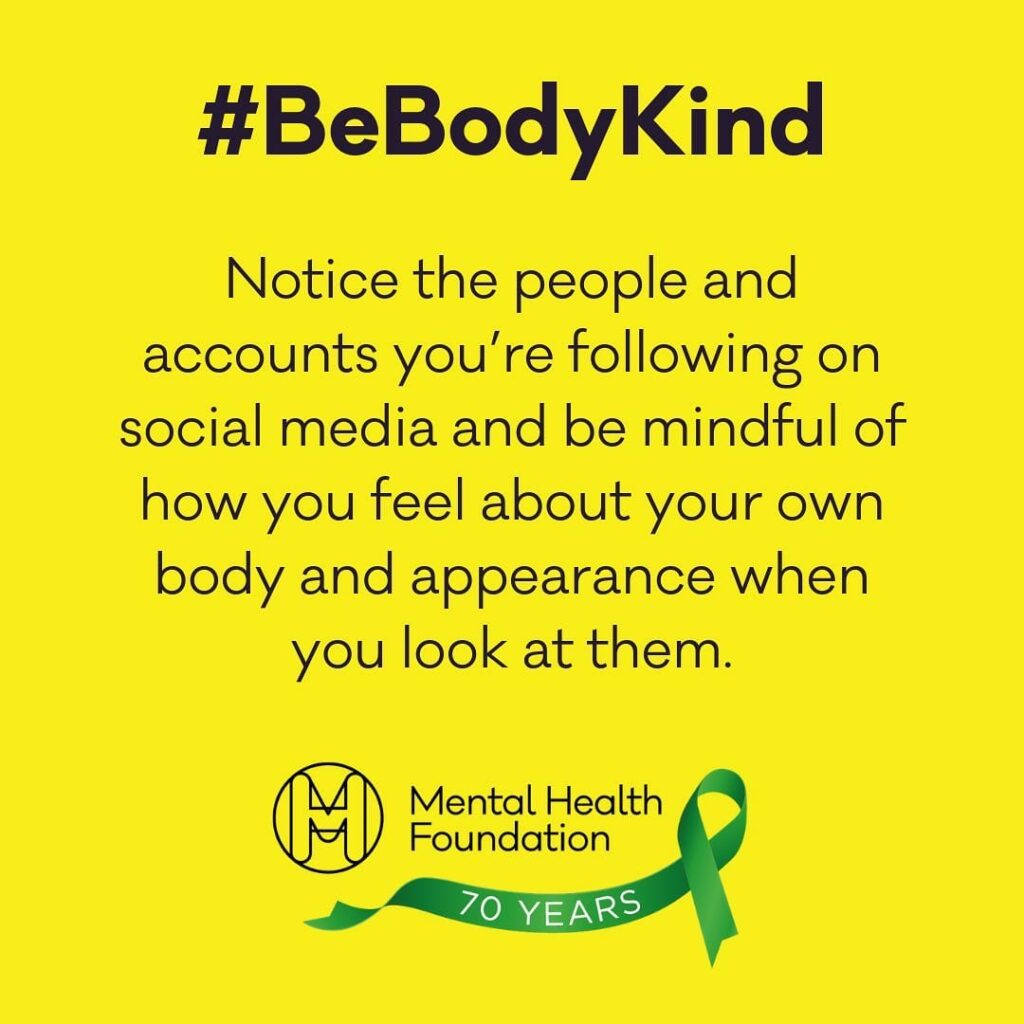
Self-sabotaging beliefs are not in charge. You are in charge because you are the one who built the pathway and you can choose to build a different one. You can choose to change it for a belief system that will serve you and your life.
Be an advocate for whole body health
Health is about so much more than our bodies. So when you’re next talking about ‘health’ with a friend, colleague or family member, see if you can open up the discussion. Start looking at health from a 4-dimensional perspective in order to help yourself and others build a balanced attitude and action plan for healthy living. Share and celebrate the joys of slowing down, sleeping, reading and consciously creating the life that you want lead.
But don’t worry if you do feel negative about your body from time-to-time. Because even when you don’t love your body: your body will always unconditionally love you.
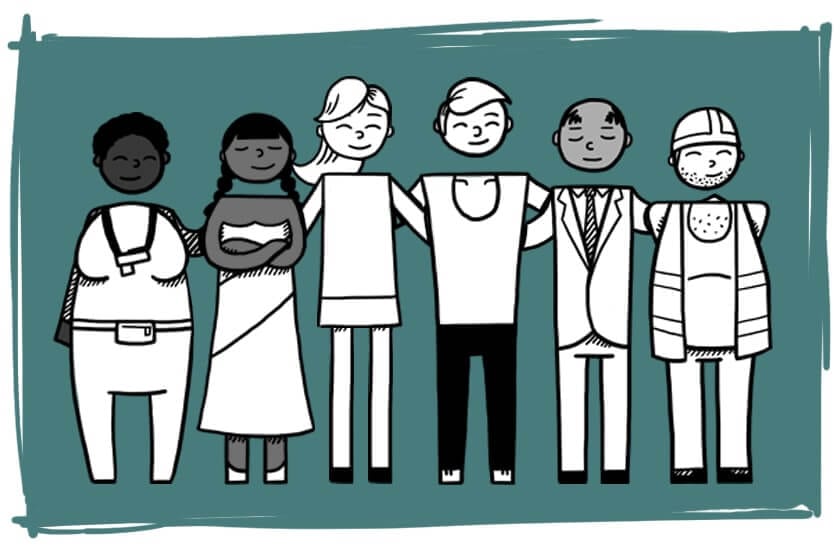
Mental Health Awareness Week takes place from 13-19 May 2019.
For more information and helpful resources click here.


